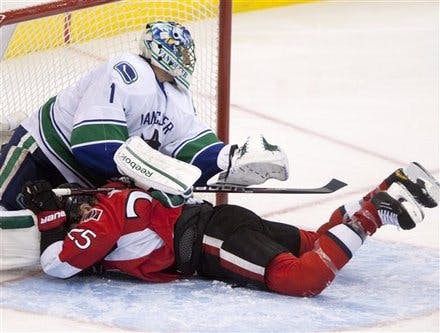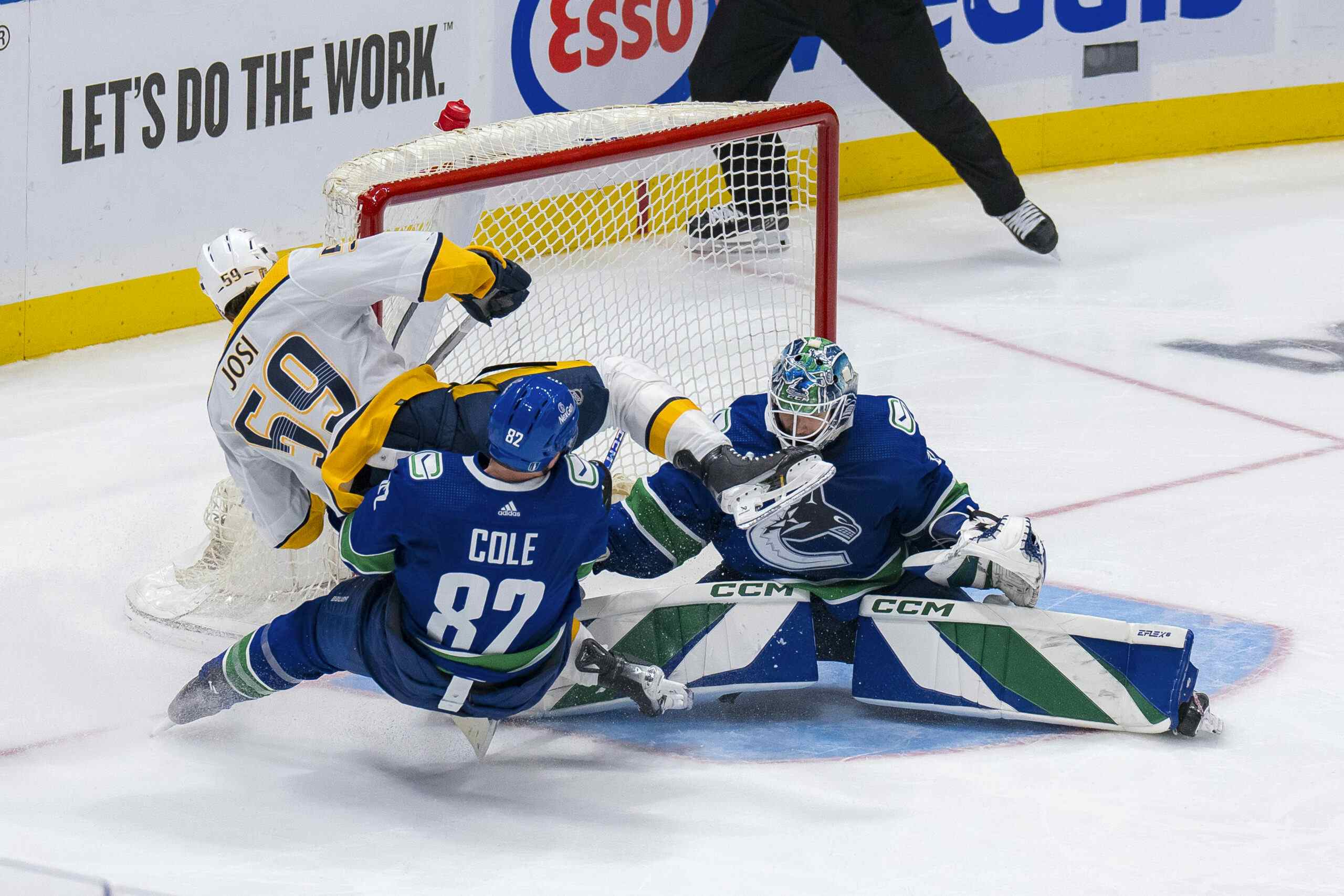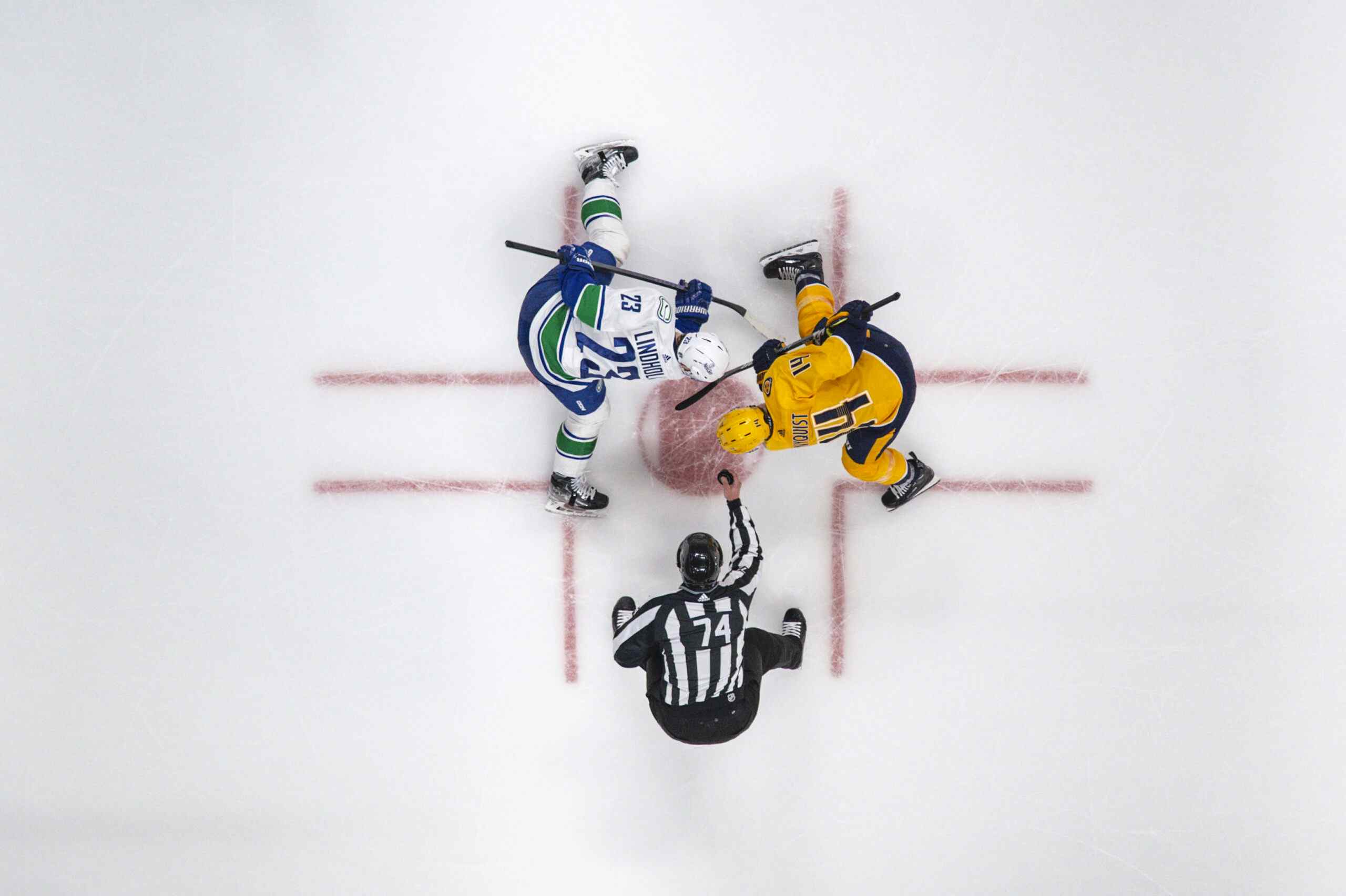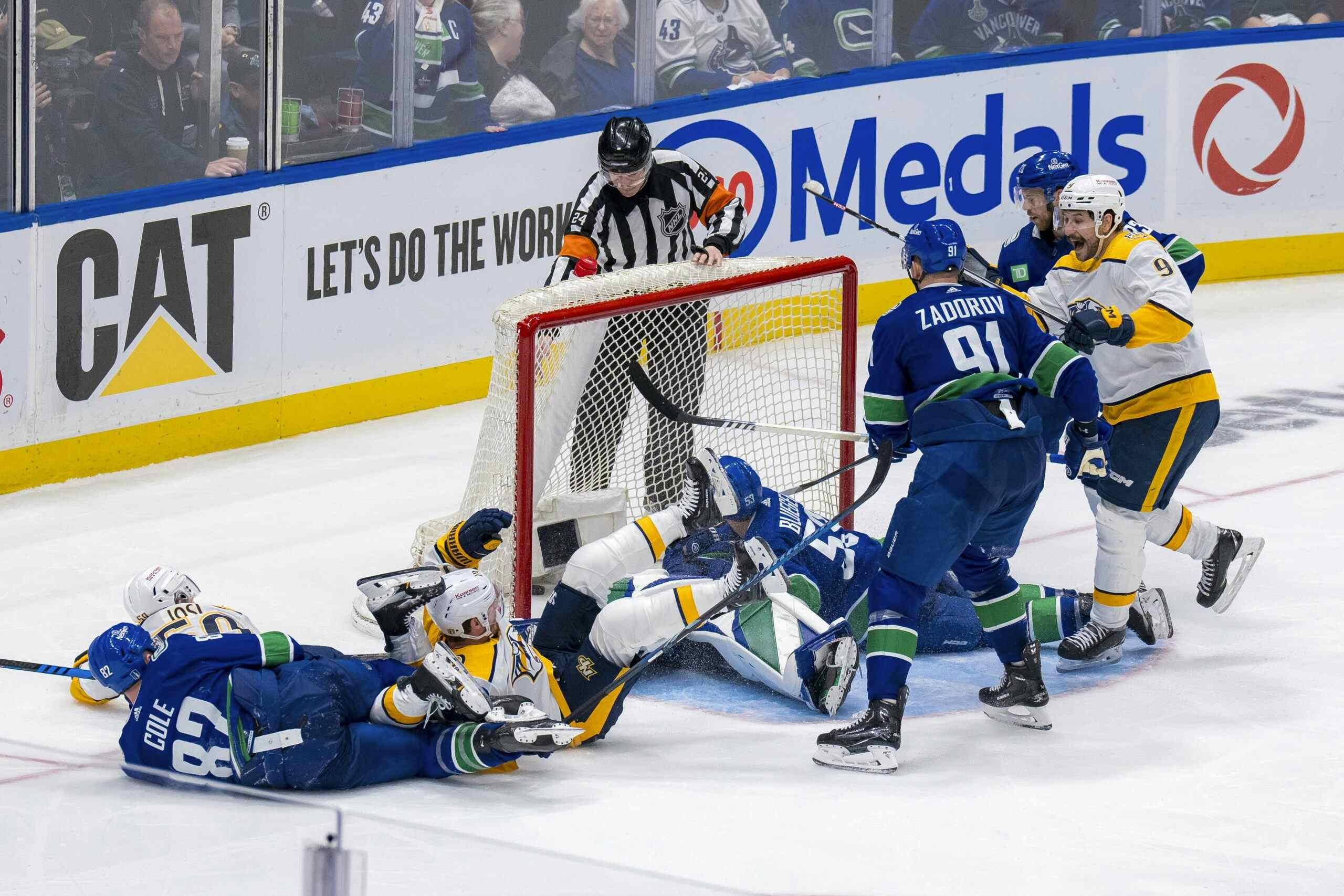Tales of Truth: Boring narratives are boring

One of these guys apparently had an excellent game on Saturday
(photo: Yahoo! Sports)
Chris Neil is amazing! He’s driving everyone nuts! Who cares that his team is down 3-0 – let’s talk about him!
Saturday night was a backwards triumph for the evil Canuck narrative. Instead of telling us why they were systematically disassembling the Senators, the brilliant collection of commentators at Hockey Night in Canada instead chose to spin a tale of aggravation and aggression. Chris Neil running around is exciting. Clinical precision is not.
The Canucks are unloved because so little of what they do is conventional. Appreciating a team is easier when they are conventional.
They have no enforcer; this irks the rock ’em sock ’em crowd. The Canucks push the limit on appropriate behaviour; this irks the stand-up-for-yourself crowd. The Canucks play a possession game which demands patience and a relentless drive; this irks the run-and-gun, shoot-from-any-angle crowd.
This makes them different, and if there’s one thing we are taught in school is that many of us fear difference.
The poppy which grows in its own way is hated by the other poppies. They may not be right to feel that way, but those shorter, more uniform poppies have been taught all their lives that it’s best to stick to the plan. Everyone can understand the plan that way. People who move away from the plan just make it harder for all of us.
Hockey Night in Canada broadcasts to a nation of uniform poppies (or at least so it imagines). These poppies want to hear the same questions asked night-in, night-out: ‘How are you going to stop the guy?’ ‘How much hustle do you need to put in there?’ ‘What’s been working out there tonight?’ Or so we are told. These are familiar questions but they are understood and the answers are easy to understand.
Now, take a moment to imagine a world where the player is asked different questions. Imagine they are asked to explain the system being used to defeat the opponent’s powerplay. Or the real purpose of attempting a slap shot pass from one end of the ice, aimed at the far corner. Or why defencemen are starting more than half their shifts in the offensive zone. Clearly the answers would be horribly complicated. Right? Right??
Apparently the truth behind the glory is dull.
Hockey’s true precision, we are told, isn’t of any appeal to the masses. Romantic stories, on the other hand, are. We don’t want to truly understand the strategies employed by coaches to defeat an opponent, or the realities of some players’ deficiencies; no, we want to know about how a guy who skates really hard but only has 3 goals is the real glory boy. And what happens when he’s on the ice against the star players? Does his play match his rhetoric? Do his ‘roughing up the stars’ tactics actually make any material difference? No, that’s not interesting.
Nor is it worth talking about a player who has worked himself into a truly impressive hockey player. You’d think that in this narrative, where we focus on the hustlers, on the guys who have to do the extra work just to keep up, that a story of hardscrabble minor-leaguer who fought the odds and made it to the top might be compelling. No, instead you focus on his flaws. He talks about refs. He’s a pest. He gets more honourable players off his game. The fact he was undrafted and has since fought, tooth-and-nail, for every position he’s ever earned isn’t important. Nor is the other fact, which is this is not a case of a player who was missed, who has never, ever stopped working to improve his game and now stands as a testament to the glory of hard work and honest effort.
I hate to be the one to break it to ya, HNIC fellas, but we are *all* flawed human beings. Some of us just happen to be on TV.
No, the narrative says that everything you do must be above board. (At least to start. As long as you are honourable to start with, you can do whatever you want later on. Don’t get it backwards, kids.)
Chris Neil has his moments. He has a role on many teams. But when his team is losing badly, he shouldn’t be the story. The story should be about what’s not happening for his team. Hockey Night in Canada is not supposed to be a collection of coaching videos; it’s just not supposed to be garbage either. Their broadcast on Saturday night was bizarrely focused and a let down to its viewers.
Chris Neil had 7 hits in the first period. His team went down 2-0. After the first period, Chris Neil was credited with no more hits. His team still lost.
Fans deserve better. Analysis isn’t hard, if you prepare ahead of time. Even narratives that ask viewers to think a little can be interesting. All teams use complicated strategies to win games and telling that story needn’t be boring. Putting players in the context of the broader structure of the game isn’t boring either.
But it does require work.
By the broadcaster.
Recent articles from Patrick Johnston





